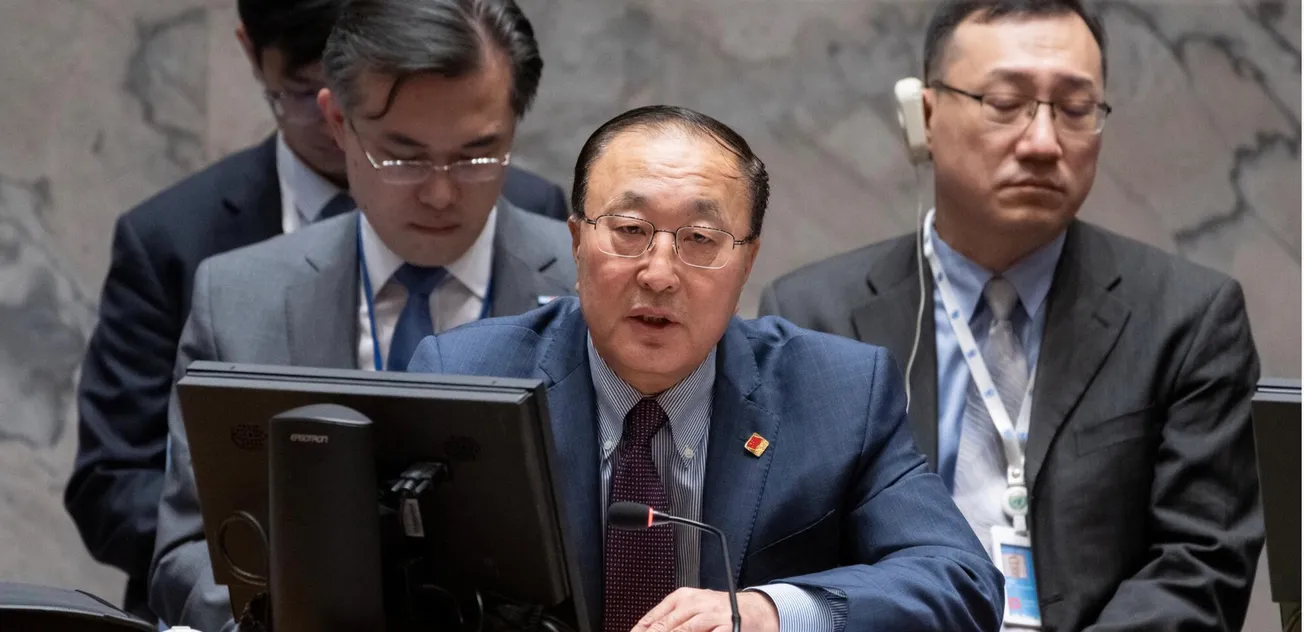The world is writhing over the ongoing situation in Southwest Asia, and unexpected openings are popping up right and left. After a successful four days of hostage releases and accompanying “humanitarian pause,” a two-day extension was announced Monday evening, Nov. 27, thereby extending the pause until Thursday morning, Nov. 30. The question lingering in front of the world, however, remains: Can this temporary pause be turned into a real, lasting peace? And what’s required to actually achieve that?
Monday then saw the convening of the Union for the Mediterranean in Barcelona, a grouping of European, West Asian, and North African countries. The summit, which has previously taken up smaller regional issues, this time focused exclusively on the situation in Gaza, reflecting the rapid pace at which history is pulling seemingly normal people and events onto the stage of history. Discussions were reportedly intense as European and Arab states came together to discuss the urgent question. What comes out of it is still to be seen.
Nov. 28 will see the convening of a high-level meeting of United Nations Security Council in New York, to be specially chaired by China’s Foreign Minister Wang Yi. In addition, members of the Arab League and Organization for Islamic Cooperation (OIC), whose foreign ministers have recently visited most members of the Security Council, will be in attendance, likely making the event another step forward in the flurry of global diplomatic activity underway.
The United States, however, continues to resist all efforts at achieving a long-term ceasefire, and is maintaining an engineered opacity regarding its intentions for the region. This while keeping the door open to vast sales of weaponry and support for Israel to continue its massacre.
Despite such a horrifying and tense situation, the wannabe “Gods of Olympus” are not all-powerful. Demonstrations continue to grow worldwide in opposition to the callous disregard for Palestinian lives, despite attempts to downplay them or paint them with the brush of “anti-Semitism.” The longer this policy continues the more clear it becomes for all to see.
Will this be enough and in time? That hasn’t been decided yet, but what can be said without a doubt is that the current temporary ceasefire was not arrived at through the noble intentions of Joe Biden and Benjamin Netanyahu. Rather their hands were forced through the enormous pressure coming in from every corner of the world. This pressure must be intensified over the coming 48 hours. Calls for an international peace conference must ring throughout the world.
In discussion with associates today, Helga Zepp-LaRouche reminded people that this conflict in Gaza, as with the war in Ukraine, are pawns of today’s reigning unipolar world order, and are thus being pushed in ways to further a much larger geopolitical agenda. This is also why it is so dangerous, because as the system continues to collapse before the eyes of the world, there are some who are willing to go to the end of the Earth to maintain their control—even if that includes world war.
Therefore, the United States and other Western nations must be brought to see other nations, particularly rising powers such as Russia and China, not as threats to “our system” but as allies in an effort to improve the whole world. Those who are stuck in a geopolitical confrontation are like “robots,” Zepp-LaRouche said, “they have no idea of culture nor of justice,” and they have no respect for the cultures of other nations.
“It is high time that the United States goes back to its foreign policy of John Quincy Adams, and that Europe likewise really starts to overcome the remnants of colonialism,” she continued. These underlying axioms are the biggest obstacle for Western societies’ ability to see a solution out of this crisis, Zepp-LaRouche said: “They do not really take into consideration the fact that the Global South has a fundamental right to overcome poverty, and that their decision, which was reinforced by China’s rise and the economic power of China … that they have the absolute right to control their own resources, increase the value chain in their own countries by reprocessing and the creation of semi-finished and finished products, and by building up real, full-fledged economies in their own country to increase the living standard of the entire population.”
Therefore, the way to shift the world today is to “get Europe and the United States to really understand that cooperation with the Global South, and not confrontation, is the easy way to get out of this whole war danger and establish a new paradigm among the nations of the world.”






